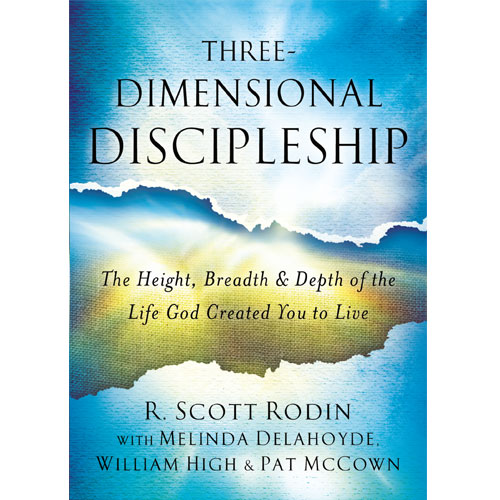Four Powerful Lessons for Effective Leadership
Inspirations from The Steward Leader’s Psalm.

There are times when a scriptural passage strikes deep in your heart.
You know the kind – it sticks in your head long after you’ve read it. When you go back to it you meditate on it and roll it over in your mind a thousand times. For the last three months that is how Psalm 86:11 has impacted me. I have come to believe it is the Steward Leader’s Psalm.
“Teach me your way, oh Lord, that I may rely on your faithfulness; grant me an undivided heart, that I may fear your name.” Psalm 86:11
Walk with me for a few moments through this wonderful verse and see if you don’t agree it provides inspiration, challenge and guidance to all of us who seek to be steward leaders.
1. “Teach me your way, Oh Lord…”
The Psalmist begins with a heartfelt plea. He is calling out, pleading with God to teach him God’s way. He knows it is the way to life that is truly life. As a leader we know that God’s way is the only way we want to lead our organization, church, business or ministry. “Teach me your way” is the cry of the steward who seeks nothing less than to know for certainty the will of the owner.
So here’s the question, what other ways would we follow other than God’s ways?
The writer knows that if we are not constantly being taught God’s way, we will certainly end up going our own way. You can almost hear a cry of desperation in this plea. Tired of going his own way and seeing life collapse around him, the psalmist comes to God with this request that he would teach him His way, confident that His way is the way of faithfulness, the way of peace, the way of joy.
This verse reminds us that we cannot find any of these things on our own, so we join with the psalmist in crying out to God that he would so instruct us in His vision for our life that we will gladly abandon any desires to go our own way and cleave to the path He has laid before us.
There is one more aspect of this plea we must not miss. It assumes that we are teachable, that we know how God speaks to us and teaches us when we ask. How does God ‘teach’ you? What does that look like and when has it been most effective in your life? Are you teachable, thirsting after instruction that will guide you in God’s way of life? Strive to cultivate a teachable spirit and hunger each day to know God’s way for your life and your leadership. That is the attitude of the Steward leader.
2. “That I may rely on your faithfulness”
In the second line the psalmist raises for us an immediate question, upon whom or what else do you rely on other than God’s faithfulness? As leaders we are tempted to rely on so many counterfeit claims of reliability. Financial reserves, long trusted friends, the certainty of continued health, best laid plans, and our own skills and ingenuity will all fail us at some time. Isaiah warns us,
“Woe to those who go down to Egypt for help, who rely on horses, who trust in the multitude of their chariots and in the great strength of their horsemen, but do not look to the Holy One of Israel, or seek help from the Lord.” Isaiah 31:1
Perhaps the more telling question is this;, what is it about God’s faithfulness that makes it reliable for us? Or put another way, is God’s faithfulness enough for us to forsake all else and rely on it alone? To rely on God is to trust him ultimately and completely for all things. It is to refuse to be tempted to look elsewhere for the certainty we need as leaders if people are to follow us with confidence. It is more than just believing that God is faithful, it is the conviction that God is faithful to us. This is a deeply personal decision, to trust God not just for the rising sun and the spring rain, but for all of the insecurities, questions, challenges and deep doubts that may haunt us as leaders.
Is God really faithful, to us, in each of these situations, without fail? Let your life and leadership answer with a resounding ‘Yes.’ Steward leaders must cling to nothing else.
3. “Grant me an undivided heart”
Again the psalmist by his entreaty raises the obvious question, ‘is your heart divided, and if so, what are the sources of devotion that divide it?’ The fact that he asks for an undivided heart means he knows the disasters that result from a heart confused by competing loyalties. Is your heart divided? That is a watershed question for a steward leader.
A divided heart is the enemy’s playground. There is little that he cannot get us to do if we allow our heart to remain riven, with only partial loyalty to God’s way, partial commitment to following Christ as a leader. Jesus’ warning concerning our love of money can be broadened to include anything that would require such allegiance that it would divide our heart, “Where your treasure is, there will your heart be also.” Matthew 6:21 Put another way we must ask ourselves as leaders, ‘Who – as a matter of deep conviction and humility – will determine your worth, the value of your life on earth?’
What would having an ‘undivided heart’ look like in practical terms in your life? What would you have to stop worshiping in order to have an undivided heart?
This is a challenge to name our idols and be willing to sacrifice them at the foot of a faithful God who seeks our total love and devotion, and who promises life abundant in return. You cannot afford to stay in a leadership position if you allow an undivided heart to flourish within you.
4. “That I may fear your name.”
One last time the psalmist’s words beg a larger question, ‘If we don’t fear God’s name, what else do we fear instead?’
Be sure of this, we will always fear something, or should I say some things. The old adage reminds us if we fear God we will fear nothing else, if we do not fear God we will fear everything else. For a leader to admit fear requires of us the kind of deep introspection and honest self-assessment that the busyness of our work seldom allows. We have to make time for this, to force the issue and confront our fears head on. To fear something else is an outright rejection of an absolute trust in a sovereign God who loves us and upon whose faithfulness we can absolutely rely. For this reason, the enemy will throw the gates of hell against us if he can keep us from naming our fears and replacing them with a holy fear of our gracious and loving God.
In an ironic way, God invites us to drive all such fear from our lives solely by means of cultivating a constant, sacred and overwhelming fear of God. As leaders, this fear drives us to our knees in worship and adoration, knowing that the God we fear is the God who loves us deeply, who gave himself for us and who calls us every day into a deeper relationship with him.
To fear this God means to practice reverence, a sense of the sacred in all things dealing with this God. It is not a fear that causes us to recoil away but to fall into the arms of this awesome, Almighty God. For it is in his arms that we find the power and protection against the evil one. Moses said to the people,
“Do not be afraid. God has come to test you, so that the fear of God will be with you to keep you from sinning.” Exodus 20:20
Do you want to keep from sinning as a steward leader? Then cultivate a healthy fear of the Lord in all you do. Here His command again from Deuteronomy 10:12:
“And now, Israel, what does the Lord your God ask of you but to fear the Lord your God, to walk in obedience to him, to love him, to serve the Lord your God with all your heart and with all your soul.” Deuteronomy 10:12
That is the heart’s cry of a steward leader.
Bonus
There is one final question this verse raises. Why do you think the psalmist ends this verse with ‘fearing God’s name’? Could it be that the fear of the Lord is the anchor for everything else? If so, then why do we talk so little about it? Where are the books, workshops and courses on leadership that focus on fearing God as the first and most important step in being an effective leader?
If this is truly the anchor for our work as leaders, then I would suggest this Psalm can just as easily be read in reverse order…
If we fear God above all else it will drive all division from our heart.
An undivided heart is a heart totally committed to an awesome God we love, serve and fear.
With an undivided heart we live and work with the reliance on the faithfulness of the God we fear.
And with such an undivided, trusting heart, our lives as leaders will be marked by a thirst to listen for God’s voice as the owner of all things, and respond with obedience.
“Teach me your way, Lord, that I may rely on your faithfulness; give me an undivided heart, that I may fear your name.” Psalm 86:11
Steward leaders, may it be our heart’s cry.





